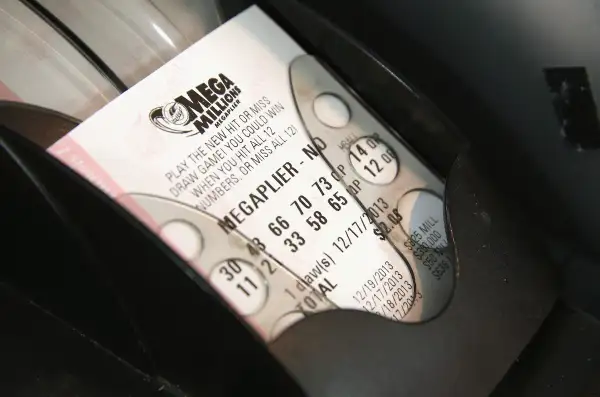Why the Mega Millions and Powerball Jackpots Will Keep Getting Bigger

The jackpots for Mega Millions and Powerball lotteries are each well over $300 million right now. The estimated jackpot for the next Mega Millions drawing, on Tuesday, January 2, is $343 million, while the Powerball jackpot scheduled for Wednesday is up to a whopping $440 million.
There have been much higher multi-state lottery jackpots in recent history: In early 2016, for instance, the Powerball grand prize hit a mind-blowing $1.5 billion, and last August, a woman from Massachusetts won the biggest individual Powerball prize ever, worth nearly $760 million before taxes. At one point in late 2013, the Mega Millions jackpot hit $550 million.
According to CNBC, however, this week marks only the second time in history that both the Mega Millions and Powerball jackpots surpassed $300 million at the same time.
Such an event probably won't be much of a rarity going forward, though, thanks to changes to both lottery games that push jackpots ever higher—while simultaneously decreasing the odds of winning.
Powerball's new rules went into effect in the fall of 2015, when the set of numbers players choose from increased from 59 to 69. The takeaway was that the odds of winning, which had previously been 1 in 175 million, became even less likely, at roughly 1 in 292 million.
The upside for Powerball players is that as fewer people have been hitting the jackpot, the grand prizes keep rolling over and keep getting bigger. Hence the epic Powerball jackpots we saw last summer and in early 2016. And hence the increased excitement and rising Powerball ticket sales nationally whenever the jackpots head into the stratosphere.
More recent changes to Mega Millions were also instituted with the idea that they would push jackpots higher. Starting in October 2017, the price of a Mega Millions ticket doubled from $1 to $2, and the game was redesigned in terms of the number of balls players can choose from. As a result, the odds of winning the Mega Millions jackpot became worse overnight, going from roughly 1 in 259 million to 1 in 303 million.
More people will be playing Mega Millions anyway. Why? The redesigned game also increased the opening Mega Millions jackpot, from $15 million to $40 million. What's more, similarly to Powerball, the jackpots have been growing exponentially quicker and larger—because players are paying more for tickets, and because as fewer people win the grand prize soars higher and higher.
The way things are going, it won't be all that unusual in the future for both Mega Millions and Powerball to have jackpots over $300 million, or even $500 million. And if the jackpots for both hit $1 billion at the same time, you can expect lottery hysteria—and sales of Mega Millions and Powerball tickets—to ratchet up to levels no one's ever seen.
